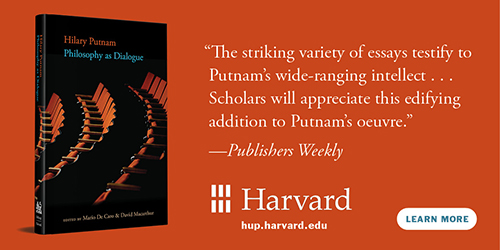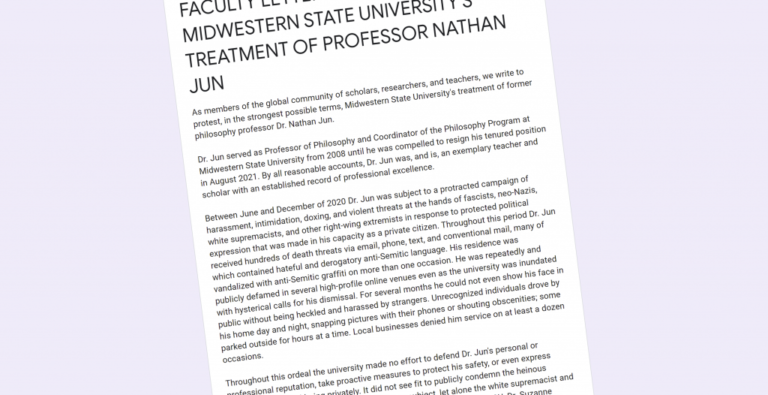The supposition is not unusual.* In his “Why Isn’t There More Progress in Philosophy?” David Chalmers (NYU) writes:
We might also learn more about what we think of the aim of philosophy through this exercise. A bold and convincing suggestion for re-organizing philosophy might itself overcome one’s skepticism about philosophy aiming for convergence on answers to big philosophical questions by revealing such skepticism to be a function of philosophy’s current mode of institutionalization. Or one might discover that what would be required for organizing philosophy optimally towards answering its questions is so unappealing as to prompt reconsideration of the worthiness of that aim.
* I don’t think much philosophical knowledge takes the form of answers to philosophical questions, as I discuss here.
If answering its big questions is what philosophy is mainly about, could we say that our current institutions and professional practices are ideally suited to the task? (Beware status quo bias!)
But it might also be instructive to relax the feasibility restrictions quite a bit, and try to imagine arrangements very different from the status quo, or arrangments heretofore untried but that seem possibly promising. Perhaps we could, for instance, wrangle small but feasible steps for reform from some wildly unrealistic grand visions.
Suppose the main aim of the enterprise of academic philosophy is to generate philosophical knowledge, and that said knowledge is mainly answers to big philosophical questions. How should the discipline be organized so as to best achieve this aim?
So, philosophers, how should we organize for answers?
If not, then what should answer-seeking philosophical institutions and practices look like?
I suspect that for the majority of philosophers, the primary motivation in doing philosophy is to figure out the truth about the relevant subject areas: What is the relation between mind and body? What is
the nature of reality and how can we know about it? Certainly this is the primary motivation in my own case… At least pretheoretically, many of us get into philosophy looking for truth and looking for answers.


How people answer this question may depend on how feasible they think their answers must be. On the conservative end of the feasibility spectrum, one might take the question to be asking, “Which other disciplines, if any, should we take as models for philosophy, and how?” That’s one way to interpret the question, and answers to that version are welcome.





